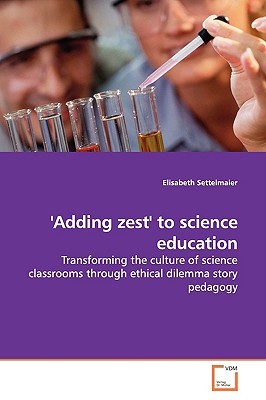
- We will send in 10–14 business days.
- Author: Elisabeth Settelmaier
- Publisher: VDM Verlag
- ISBN-10: 3639132904
- ISBN-13: 9783639132908
- Format: 15.2 x 22.9 x 3.2 cm, softcover
- Language: English
- SAVE -10% with code: EXTRA
Reviews
Description
It seems a habit of our time to lament about the state of the world and simultaneously profess that there is nothing we, as individuals, can do about it. In this auto/ethnographic study, Elisabeth challenges this view on the basis that science teachers in particular seem in a unique position to raise students' awareness of problematic issues in relation to the world around them by providing them with necessary knowledge. Sound knowledge however, does not equate with positive attitude: providing students with factual knowledge alone might thus be insufficient for enabling them to participate in the public discourse on making the world a 'better place'. Given the pervading influence of science on our daily lives, this discourse must include a focus on science, scientific research and its uses. Traditionally science has often been taught without addressing ethical questions. Elisabeth argues that the inclusion of a discourse on ethical issues into science classrooms might open an avenue for science educators to offer students opportunities for practising engagement as future decision makers by learning to reflect critically and collaboratively on their attitudes, beliefs and values.
EXTRA 10 % discount with code: EXTRA
The promotion ends in 17d.02:16:38
The discount code is valid when purchasing from 10 €. Discounts do not stack.
- Author: Elisabeth Settelmaier
- Publisher: VDM Verlag
- ISBN-10: 3639132904
- ISBN-13: 9783639132908
- Format: 15.2 x 22.9 x 3.2 cm, softcover
- Language: English English
It seems a habit of our time to lament about the state of the world and simultaneously profess that there is nothing we, as individuals, can do about it. In this auto/ethnographic study, Elisabeth challenges this view on the basis that science teachers in particular seem in a unique position to raise students' awareness of problematic issues in relation to the world around them by providing them with necessary knowledge. Sound knowledge however, does not equate with positive attitude: providing students with factual knowledge alone might thus be insufficient for enabling them to participate in the public discourse on making the world a 'better place'. Given the pervading influence of science on our daily lives, this discourse must include a focus on science, scientific research and its uses. Traditionally science has often been taught without addressing ethical questions. Elisabeth argues that the inclusion of a discourse on ethical issues into science classrooms might open an avenue for science educators to offer students opportunities for practising engagement as future decision makers by learning to reflect critically and collaboratively on their attitudes, beliefs and values.


Reviews